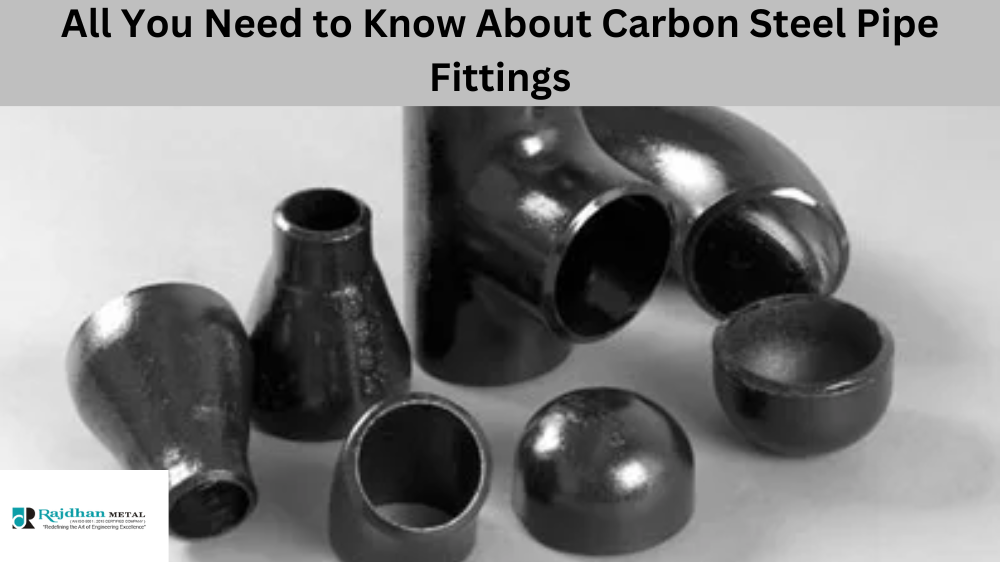Mild steel-forged fittings are unsung heroes in the industrial world, offering structural integrity to countless infrastructures we encounter daily. This comprehensive guide will delve into the what, why, and how of mild steel forged fittings, presenting everything you need to know about these essential components.
Introduction
The strength and functionality of many industrial systems lie in their smallest details: the joints, bends, and connections that piece piping frameworks together. These pivotal points often employ fittings, and among the most reliable are those made of mild steel forged under high pressure to ensure superior quality. Read on to learn more about the significance of these fittings, how they’re applied across industries, and tips for their installation and maintenance.
What are Mild Steel Forged Fittings?
Forged fittings are produced by a forging method that involves shaping metals under high pressure and temperature, leading to impeccably strong and resilient products. Mild steel, known for its excellent versatility and weldability, makes it an ideal candidate for this manufacturing process.
As critical components in piping systems, mild steel forged fittings connect straight pipe sections, adapt to different sizes or shapes, and help regulate or measure fluid flow. The forging process renders them far superior in strength to fittings made by other methods, such as casting.
Types of Mild Steel Forged Fittings
Within this category, you’ll find a variety of fittings, including:
-
- Elbows: Applying changes in direction.
-
- Tees: Branching off pipelines.
-
- Couplings: Connecting two pipes.
-
- Unions: Similar to couplings but designed for quick disconnection and maintenance.
Each type comes in various sizes and specifications to meet the demands of different applications, ensuring a seamless fit for any system.
Advantages of Mild Steel Forged Fittings
The benefits of using mild steel forged fittings can’t be overstated:
-
- High strength and durability: These fittings can withstand great forces, temperatures, and pressures without deformations or failure.
-
- Resistance to corrosion and heat: While ‘mild’ suggests a softer material, the fittings often receive treatments to resist environmental and chemical threats.
-
- Versatility in applications: Suited for an abundance of industries due to their broad compatibility with various fluids and gases.
Installation and Maintenance
Perfect installation is key to ensuring system reliability. It’s crucial to follow proper threading, welding, and sealing guidelines while ensuring compatibility with the used pipes. During installation, experts advise preventive measures against over-tightening, which could compromise the fitting’s integrity.
Maintenance practices include:
-
- Regular inspections for wear and tear.
-
- Timely replacements.
-
- Routine cleaning to prevent buildup that could affect the system’s operation.
Common Applications
Mild steel forged fittings are omnipresent across various sectors, from the oil and gas industries to water distribution, chemical processing, and residential plumbing systems. Their robustness makes them ideal for heavy-duty applications demanding long-lasting connections.
Comparison with Other Materials
When matched against other materials like PVC, brass, or stainless steel, mild steel forged fittings offer a unique balance of affordability and performance. While they may sacrifice some corrosion resistance compared to stainless steel, treatments and coatings can bridge this gap, making them a cost-effective solution without significant compromise.
Conclusion
Opting for the right mild steel forged fittings is a crucial decision that can impact industrial systems’ efficiency, safety, and longevity. This guide has walked you through their varied types, benefits, applications, and why they’re favoured in numerous fields. Remember, the strength of a system lies in its connections – choose wisely, install carefully, and maintain diligently for enduring performance.
Whether you’re a seasoned engineer or new to industrial fittings, the versatility and strength of mild steel forged fittings make them an essential component worth considering for your next project.





